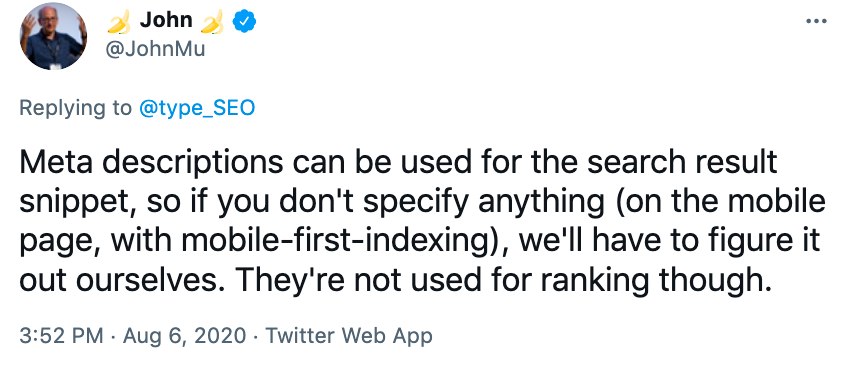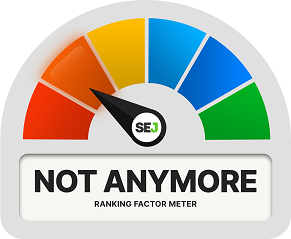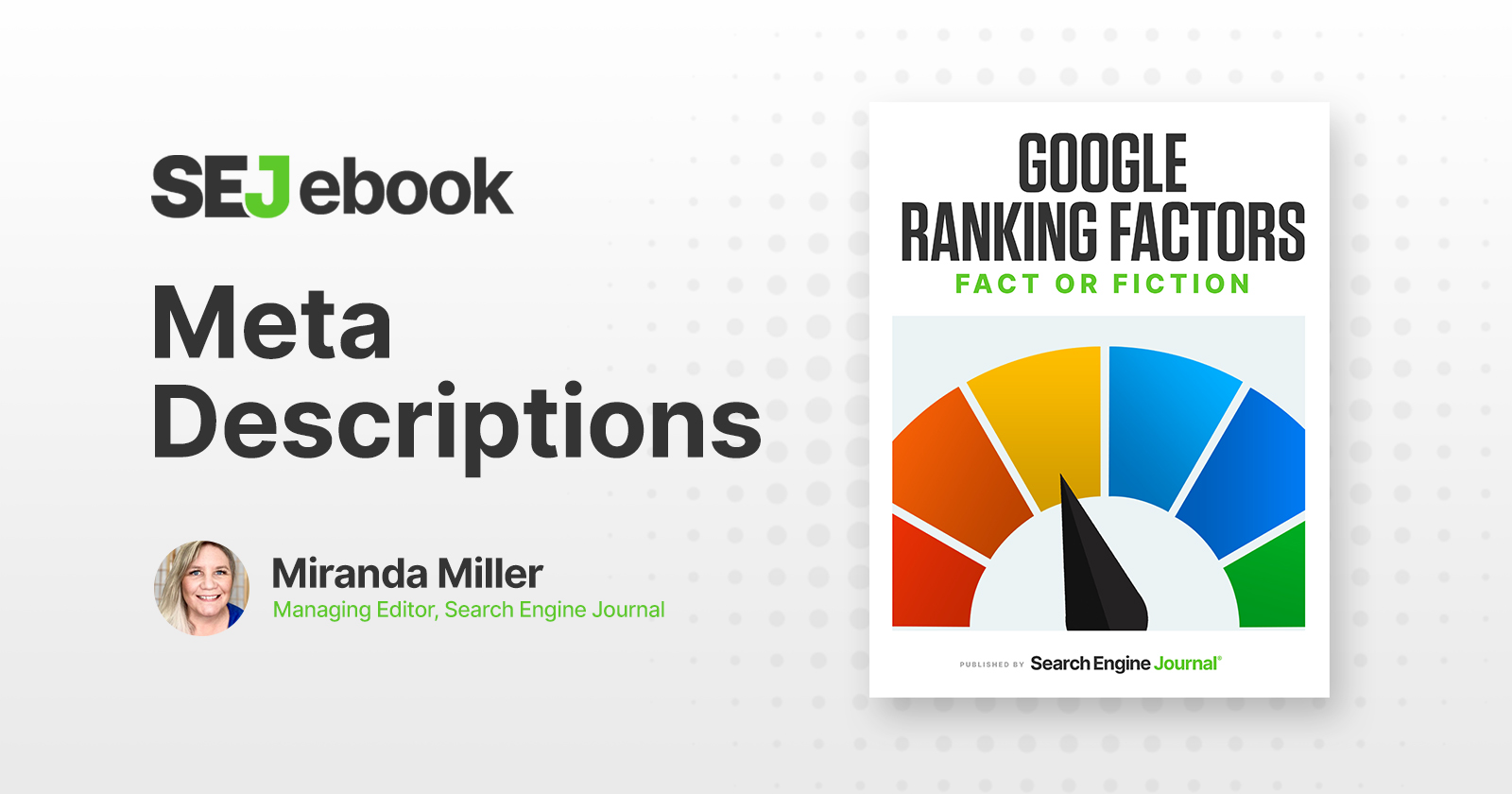Meta descriptions can help appear in search results and social media, enticing people to click through and visit a site.
They can help search engines like Google understand what a web page is all about, too.
If you run a site audit using one of many SEO tools, you may find a flag or warning about missing or duplicate meta descriptions.
This could suggest that you need to make sure each page has a unique meta description, as part of your SEO strategy.
But are meta descriptions actually a factor in Google’s search ranking algorithm?
The Claim: Meta Descriptions As A Ranking Factor
The idea here is that if you write an optimized meta description, it will help you rank higher in Google search results.
Since we’re talking about a field with fairly limited space, the conventional wisdom is that you should use your target keyword phrase in the meta description as SEO best practice.
Yoast is considered one of the definitive experts as far as meta descriptions go.
At the time of publication, the Yoast WordPress SEO plugin was in use on over 7.9 million sites.
And here’s what Yoast recommends as far as meta descriptions go:
- Keep it up to 155 characters.
- Use your focus keyword.
- Make sure it matches the content of the page.
If and how often you use the focus keyword in your meta description is part of the SEO evaluation Yoast provides:
 Screenshot from Yoast, January 2022
Screenshot from Yoast, January 2022All of this seems to suggest that optimizing your meta description is essential for SEO.
But does Google actually use it to determine your ranking?
The Evidence For Meta Descriptions As A Ranking Factor
In a video published on the Google Search Central channel in August 2020, Google’s Search Advocate Martin Splitt said of meta descriptions:
“Please don’t forget to add them to your mobile pages. They matter a lot for Googlebot, as well.”
Almost immediately, an SEO professional tweeted Splitt asking for any additional details.
Splitt responded that the meta description and page title not only provide searchers a first impression but also:
“…helps Google Search to get a short summary of what you consider important about the page.”
Now, this caught a bit of attention.
The widely-held belief among SEO pros is that meta descriptions lost any ranking value they may have had a long time ago.
As Ann Donnelly wrote even back in 2011,
“Most of us know that while the search engines no longer consider the meta description in their ranking factors, this element of your page is still important in getting traffic to your site.”
Could it be that after all this time, Google actually does use meta descriptions as a ranking factor?
No.
Here’s why.
The Evidence Against Meta Descriptions As A Ranking Factor
John Mueller was quick to clarify:
 Screenshot from Twitter, August 2020
Screenshot from Twitter, August 2020Now, there’s a healthy skepticism amongst SEO pros that Google perhaps isn’t entirely honest and open about ranking factors. Maybe you choose not to take Mueller at his word.
Even so, meta descriptions as a ranking signal just doesn’t hold water.
First, it’s ridiculously easy to manipulate. Just put the keywords you want to rank for in there and voilà!
Instant signal to Google that you should rank for that keyword phrase.
That was indeed the belief system in 2005-2008 or so when I was writing for sites like About.com, Demand Media, and Suite101.com.
Back then, on-page optimization was quite formulaic and you could literally change up keywords in your title, meta description, subheadings, etc., and see rankings change dramatically.
And that’s exactly why the meta description lost any value as a ranking signal.
Matt Cutts’ 2009 explanation of why meta keywords were removed from the algorithm sheds some light on their thinking around meta descriptions at the time, as well:
“About a decade ago, search engines judged pages only on the content of web pages, not any so-called ‘off-page’ factors such as the links pointing to a web page.
…Because the keywords meta tag was so often abused, many years ago Google began disregarding the keywords meta tag.
Even though we sometimes use the description meta tag for the snippets we show, we still don’t use the description meta tag in our ranking.”
Even today, the meta description you assigned to that page might not appear in search results.
In fact, a 2018 experiment by the team at Yoast found that Google “often” came up with its own description to use in the search snippet.
There didn’t seem to be any rhyme or reason as to why Google found some of the meta descriptions provided inadequate, either.
Michiel Heijmans noted:
“It didn’t matter if we’d created long or short meta descriptions and whether the description was written with a high or low keyword density.”
They also found that in two-thirds of cases, Google used content from the first paragraph on the page to populate the search snippet.
More recently, Portent found that Google rewrites meta descriptions over 70% of the time.
Meta Descriptions As A Ranking Factor: Our Verdict

Google does not use the meta description as a search ranking signal and hasn’t since sometime between 1999 and 2003-04.
That doesn’t mean they aren’t an important element of your SEO strategy.
The direct benefits of meta descriptions can include:
- Improving click-through rates from search results.
- Helping to differentiate your content from competitors in the SERPs.
- Intriguing and engaging searchers, compelling them to check you out.
- Brand exposure.
Indirectly, the additional user behavior signals resulting from more – and more engaged – site visitors can support your SEO.
But on their own, meta descriptions aren’t a ranking factor and haven’t been for a long time.
See Brian Harnish’s SEO Best Practices: How to Create Awesome Meta Descriptions for helpful tips.
Featured Image: Paulo Bobita/Search Engine Journal





![AI Overviews: We Reverse-Engineered Them So You Don't Have To [+ What You Need To Do Next]](https://www.searchenginejournal.com/wp-content/uploads/2025/04/sidebar1x-455.png)